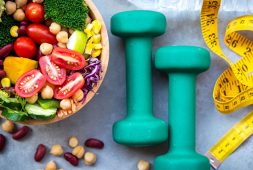
Consuming French fries may not directly lead to depression, but constantly feeling guilty about it might not be beneficial for your mood either. A recent study suggests a potential link between mental health and regular consumption of fried foods, particularly those made from potatoes. However, experts caution against singling out “bad” foods as it could have negative consequences.
Could eating French fries increase your risk of depression? A study published in the Proceedings of the National Academy of Sciences (PNAS) on April 23 examined the connection between fried food consumption and mental health. The research indicated a strong association between consuming a high amount of fried foods and an elevated likelihood of experiencing depression and anxiety, especially among men and younger individuals. Despite these findings, health experts advise against making hasty decisions solely based on this study.
Western dietary patterns have been unfavorable when it comes to being linked to poor mental health, as per the authors. These findings “highlight the significance of reducing fried food consumption for mental health,” they had written.
The study’s findings, along with certain media headlines discussing the potential mental health hazards of fries, have been received skeptically by some members of the healthcare community.
People Don’t Get Depressed from Earing French Fries
“I’ve worked in a hospital setting for over a decade helping people who experience severe depression. French fries don’t land people in hospital,” Psychologist Jonathan N. Stea, PhD tweeted as a response to headlines regarding the study.
“Also recognizing that association does not equal causality. It may be depressed people are more likely to eat french fries as a comfort food,” Joel Shulkin, MD answered in a tweet after. He’s a pediatrician at Johns Hopkins All Children’s Hospital in St. Petersburg, Florida.
The Connection Found in the Study
In a study aimed at understanding the impact of regular fried food consumption on depression and anxiety, the authors utilized data from a biobank, tracking over 140,000 individuals for an average of 11 years.
The results indicated that individuals who frequently consumed fried foods, particularly fried potatoes, faced a 12 percent higher risk of developing anxiety and a 7 percent higher risk of experiencing depression.
The research paper specifically highlighted acrylamide as a potential contributor to these mental health changes. Acrylamide is a byproduct formed in starchy foods when they are subjected to high-temperature cooking methods such as frying, baking, or roasting.
Notably, acrylamide is a chemical used in the production of various items like paper, textiles, cosmetics, plastics, and in water and wastewater treatment. It can also naturally form in foods when exposed to high heat. Therefore, not only French fries and potato chips contain higher levels of acrylamide, but also other everyday foods like breakfast cereals, cookies, toast, and even coffee, as reported by the American Cancer Society.
The International Agency for Research on Cancer (IARC) classifies acrylamide as a “probable human carcinogen.”
According to the National Institutes of Health, the researchers examined zebrafish, a widely used animal model in scientific studies due to their genetic resemblance to humans. After exposing the zebrafish to acrylamide for 180 days, the authors observed reduced sociability and the manifestation of behaviors resembling anxiety and depression. However, it is important to note that the expression of these behaviors in fish cannot be directly equated with human anxiety and depression.
“Even with such a large sample size, it’s hard to tease out the impact of different behaviors, like eating fried food,” said Leah Groppo, RD. She is a clinical dietitian and diabetes educator at Stanford Health Care in Palo Alto, California. She was not part of the study. There are many variables that are part of our everyday life that could have an effect on mental health, even if the authors tried to take control of the several factors it had, she said.
“I’m suspect of someone that says, ‘Aha, I’ve found the culprit that’s increasing depression, [so] we should all avoid it.’ Because our mental health depends on so many things,” Groppo said. “And anytime when you are using an animal model, we have to be careful about what we extrapolate from that,” she added.
Labeling Certain Foods ‘Bad’ Triggers Shame or Guilt
“I don’t think that studies like this are necessarily helpful to the population. It can add more confusion to messaging about how to be healthy in general,” Groppo said.
If you’re running around and don’t have time to plan and you grab a cheeseburger and French fries for yourself or your kids, it shouldn’t send you into a doom spiral, she says. “You might need or want to eat these kinds of foods sometimes. I don’t think it’s helpful to vilify them,” Groppo stated.
It can be damaging to label certain foods bad or unhealthy and judge ourselves or others when they have these, she explained. “That never helps to create healthy changes and it probably doesn’t help our mental health either. We need mental bandwidth to make healthy changes, and if you’re spending all this brain time on feeling bad about eating something like French fries, you can lose that.”
How we eat is just one of many things that can affect mood, said Groppo. “Overall, when we eat foods that are higher in fiber — fruits, veggies, plant-based — these things nourish our body and help our body function the way that it wants to,” she said.
In May 2019, a randomized controlled trial was published in PLoS One, demonstrating that young adults experienced a significant reduction in symptoms of depression when they adopted a Mediterranean-style eating pattern for three weeks.
The research revealed that participants who embraced the Med-style diet, incorporating more fruits, vegetables, whole grains, and healthy fats, witnessed a notable decline in their depression scores, moving from the moderate range to the normal range. Furthermore, these individuals reported experiencing lower levels of anxiety and stress compared to the group that maintained their regular diet without any changes.
All about Healthy Eating Patterns and Setting Realistic Goals
In a previous interview, Alice H. Lichtenstein, DSc, the chair of the writing group for the American Heart Association (AHA) statement and senior scientist and director of the cardiovascular nutrition team at the USDA Human Nutrition Research Center on Aging at Tufts University in Boston, highlighted the new dietary guidelines. The AHA now places a greater emphasis on dietary patterns rather than singling out individual foods or nutrients. Lichtenstein stressed that demonizing specific foods or food groups is not considered helpful according to these updated guidelines.
“Stop thinking of foods in terms of good or bad. If you love a food, it’s okay to enjoy it. Just don’t eat it frequently or in large portions,” said Dr. Lichtenstein.
If you want to change your eating pattern, Groppo suggested setting small, realistic goals. “For example, if you’re not eating any fruit at all, add one piece of fruit five days a week. If you want to eat more vegetables, try to work them into a meal a couple days a week,” she explained.
According to Groppo, even if the scale doesn’t show any immediate changes, making these small adjustments will lead to long-term health benefits.



